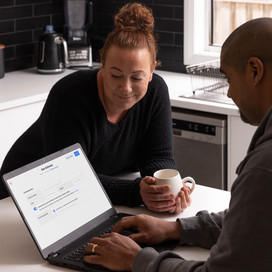Table of contents
Australia is full of entrepreneurs. According to a study by the University of Adelaide and the Swinburne University of Technology, 20% of Aussies are either planning to start a business, or already run their own. And the majority of these are under the age of 30.
One of the biggest drivers is the events industry, with business events bringing $36 billion into the Australian economy per annum. As COVID-19 restrictions ease, events are opening up again – which means the market for event planners is set to boom. And for those looking to start a business, the events industry has always been popular. A survey of more than 600 event planners in Australia found that more than half (54%) were happy with their job.
It could be that you’re starting out fresh in the industry and diving straight into the deep end with your own business. Or, you have been working for others in the industry and feel the time has come to branch out on your own. Either way, starting an event planning business can be stressful and confusing – unless you have the right advice.
There are many things you need to consider, from whether or not you want to lease an office or work from home, to the name of your business, how you’re going to finance it, and even the payment methods you’ll accept along the way. To help you get started, here are key steps you should consider.
Step One: Register your business
First things first – what are you going to call your business, or are you just going to register under your own name for now? Applying for an Australian Business Number (ABN) is easy and won’t take you long. Once you have your ABN, you can start your business. You don’t need to have any specific qualifications to become an event planner, but if you do, it will help your customers trust your expertise a little more. Depending on the type of events you’ll be planning, you may be required to have licenses and insurance, so you’ll need to look into that as well. You can find out more from the Australian Business Licence and Information Service.
Step Two: Create a business plan
Now that you have your business name and ABN, it’s time to get down to the nitty and gritty of opening a business. Creating a business plan will not only give you an idea of where you’re at, right now, but also where you want the business to go in the future. It helps you to get organised, and generally includes the following:
1. An overview of your business
What sort of events are you planning on doing? What’s your business name going to be and where are you located? Who is in charge and who are you working with, if anyone.
2. A budget
Consider both small business expenditures such as setting up an office, as well as bigger costs like your insurance policies and marketing. With your budget, you should also consider whether you are going to be able to finance the business yourself, if you need bank loans, or perhaps you’re after an investor.
3. Your customers
Who are you going to be targeting your business towards – are there potential clients you want to approach from the get-go? Make a list of companies or people you want to approach.
4. Your competitors
Which companies are your biggest competitors? What do they do and how are you going to stand out from them to entice customers to your business instead?
5. Marketing plans
What do you plan on doing with your marketing)? Do you need business cards and a website, flyers or online ads? See step four for ideas.
6. How to charge for event planning services
Consider how you are going to charge people for the work you do. What will your rate be per hour, or per job, and what payment methods will you have on hand? In an industry like this, many people choose invoicing as the preferred method – so investing in something like Square Invoicing will help you. You might even consider Square Reader or Square Point of Sale for easy, immediate in-person payments.
Step Three: Consider outsourcing
As an event organiser, you’re no doubt used to doing many things at one time – but if you actually run the business as well, it can get a lot more hectic. You not only have to organise the events, but you also need to take phone calls for bookings, meet and talk to suppliers, keep track of the finances, and much more. Rather than taking it all on yourself, consider outsourcing. Outsourcing not only helps you to hand over the tedious day-to-day tasks your business needs to survive, it also gives someone else a job. It’s an affordable option, and also saves you from hiring a full-time employee (no holiday pay, sick pay, etc required).
Step Four: Take advantage of software
Another way you can make starting your event management business easier on yourself is to make sure you have the right software programs in place. Software is an indispensable aspect of modern business. When you use it the right way, it increases productivity, boosts the efficiency of daily operations, improves your compliance, and ensures your tools all integrate seamlessly together. Software could include everything from email marketing programs to POS systems.
Step Five: Plan your marketing
The most crucial part of your business once you’ve started is how you’re going to market it. If you don’t market it, you don’t get work. If you’re already an event manager, you’ll have plenty of experience in marketing the events – now it’s time to put that knowledge to good use for your own business as well.
Start by defining your target market. Are there particular types of events you want to be working on, or are you open to anything and everything? Do you want to market your services to corporations for their team days, parents to arrange birthday parties for their children, or are you interested in large scale events like rock concerts or markets?
Once you have your market, how are you going to entice them? Time to work on a marketing plan and choose your channels. If you’re contacting businesses, you might want to start with email. An email marketing software, such as Square Marketing, is a great place to start. If you don’t have specific businesses you want to target, but you do want to hit certain industries, social media advertising could be the key. Through organic and paid social media posts, you can make sure you hit the right people, at the right time. Ensure you have an up-to-date website as well as you can use this for social media posts or to enhance your search engine optimisation with Google.
Step Six: Keep up to date on your metrics
If you’re doing all the marketing you can think of, and you’re still not getting much response from potential clients, you could be hitting the wrong targets. That’s why it’s imperative you keep on top of your metrics from all the marketing you do. You want to see if your business is hitting the goals you need to succeed, and to understand who is and isn’t reading your posts and website. This is something you could outsource – and ask them to provide a report; or you can simply take a look yourself.
Each day, you should check the number of visitors to your website, and the number of leads that came from your website or your advertisements. Weekly you want to check on your advertising campaigns and other methods of contact. For example, if you sent out a newsletter or a submission of interest on Monday, check to see how many opens and clicks you had come Friday. You should also check your website clickthrough rate each week and find out what pages they are visiting.
Every month, check how your website is ranking on search engines, and see if there are particular pages or posts on your blog that are more prominent. You should also check your social media metrics each month – this will give you an indication of the age, location and gender of the people who have been checking out your page. It’ll help you to target your advertisements better in future.
Step Seven: Don’t forget to have fun
The whole point of starting your own business is so that you can do a job you’re passionate about, and in turn you can have fun. While it’s easy to get caught up in the marketing, metrics and management of the business itself, remember that you want to be enjoying yourself as well. While the steps mentioned above will help you get your business operational, the rest is up to you. Try not to stress too much and things will fall into place.
![]()












